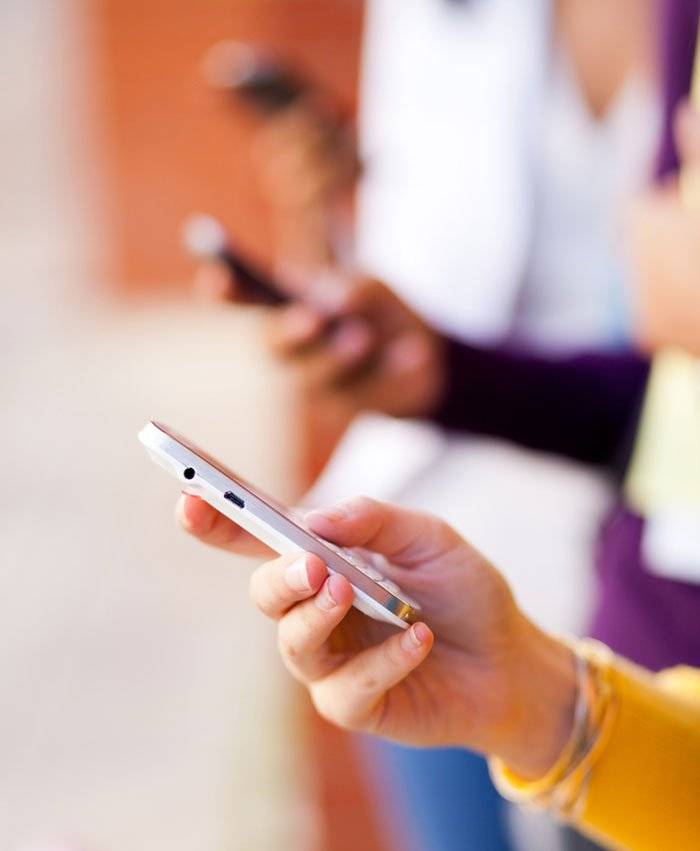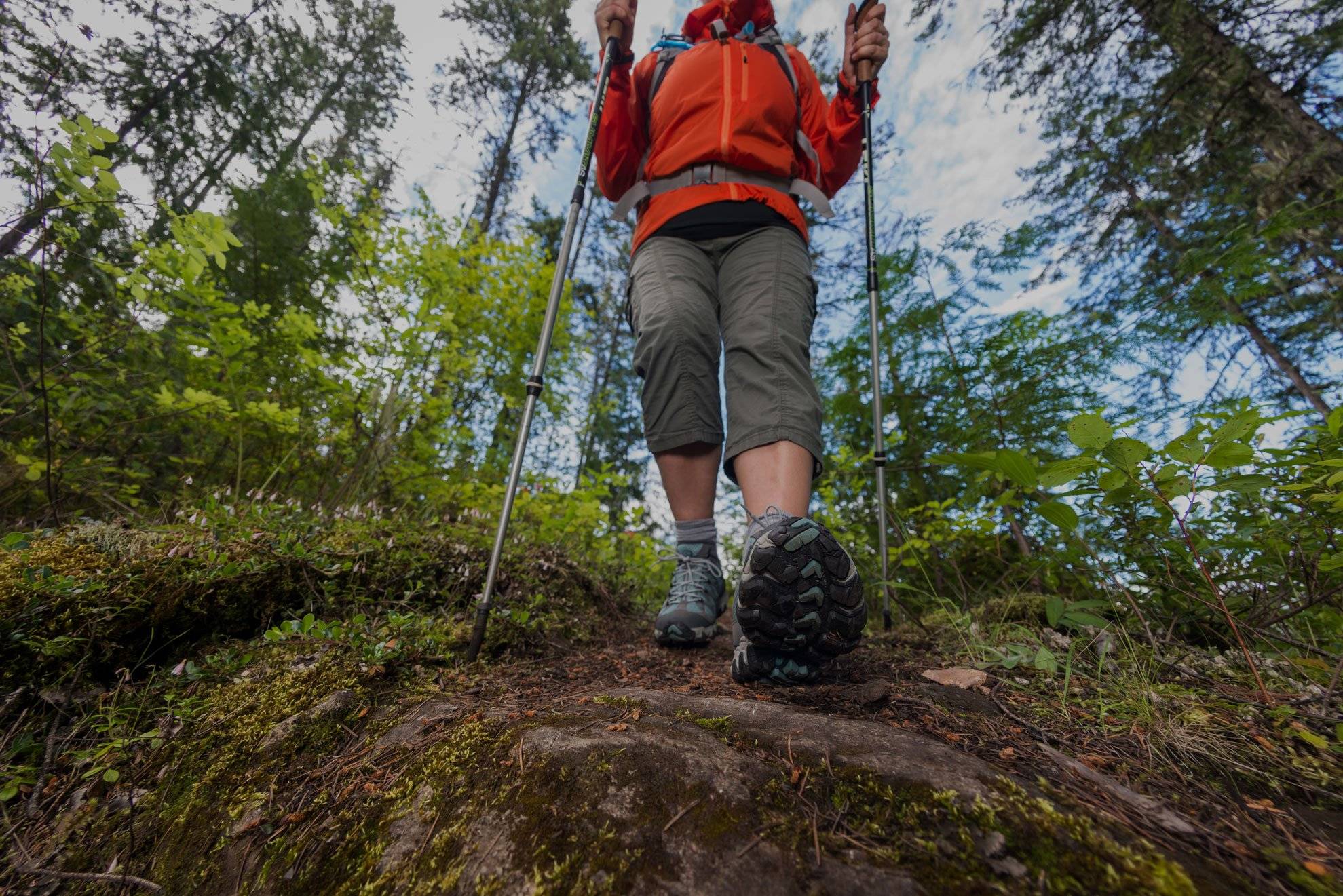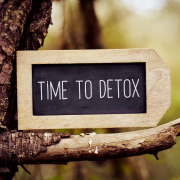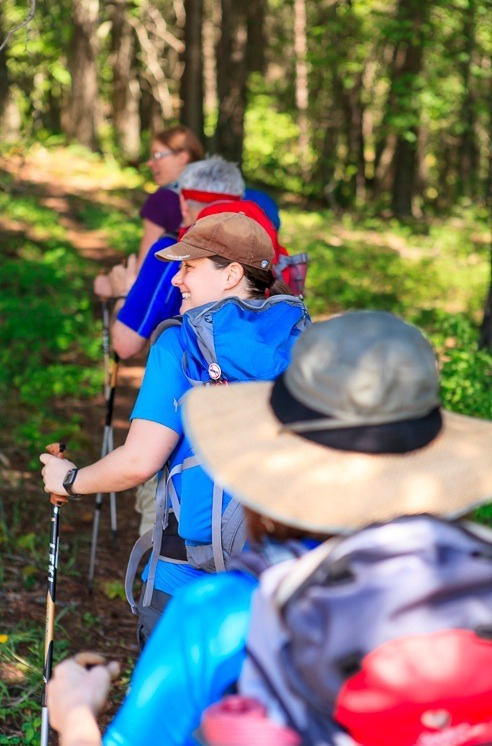The Importance of Digital Detox and How To Do It

Many ask about our digital detox program at Mountain Trek. As many of us become addicted to our phones, it’s that much more important to remember to take time away from all things digital. That’s why it’s so great to visit Mountain Trek because we’re immersed in the most beautiful natural environment in North America. One in which it’s impossible to get cell coverage for large parts of the day because we’re hiking in mountain landscapes.
Why are we hearing so much about digital detox these days?

So why are we hearing more and more about digital detox lately? According to the latest polls conducted by research corporation Ipsos, 40% of adults feel the need to “disconnect” and 71% of respondents claim they’re spending less time connecting with people face-to-face due to media consumption. Aside from the negative social ramifications, this digital dependence also comes with health costs. Digital screens can contribute to visual fatigue, headaches, and strain of the body from being stationary for so long. Also, the intense white-blue backlight of our screens raises our “wake-up” and stress hormone cortisol, often overriding our sleep-inducing hormone melatonin. Other studies have found that technology contributes to higher stress, strains on relationships and family, and attention disorders.
Why are digital devices so addictive?

If you can’t help but check your phone immediately after waking up, and then continually throughout the day every few minutes, you’re not alone. Our bodies actually crave the results of shared information via our screened devices – we’re hard-wired for it! This results from hundreds of thousands of years ago when the ancestors of homo sapiens developed physical reactions to information. When knowledge was shared (or the promise of knowledge) that could make life easier and ensure survival, their brains were flooded with dopamine, the feel-good hormone.
The same is true today. Research shows that our prehistoric brains still flood us with dopamine when our phones “ping” to let us know there’s potential knowledge or survival tools waiting for us to discover. Each notification is a little gift-wrapped packet that might make a difference to our survival. At the same time, our limbic brains are reassured that we’re socially connected. It’s the perfect formula resulting in us feeling “good” every time we receive a notification through our digital device.
Why is this addiction so dangerous?

The problem with this scenario is that our brain is actually being fooled. Very few of us receive survival tools via our social feeds and, overall, our social media interaction is incredibly shallow. This leads to “solitarism”; a buzzword that is gaining in popularity as people suffer loneliness, despite being “connected” via multiple social media streams.
How does Mountain Trek provide a digital detox retreat?
While there is WiFi in the Mountain Trek lodge, we ensure guests do not use their devices in the common areas. Nor do we have a television, radio, nor any news media on site. This is because our aim is to lower the stress hormone cortisol in your body so you can reclaim the health benefits of a raised metabolism. In other words, we want our experience to be all about you and your own health. That means there isn’t a lot of external stimuli pulling you away from your goals.
How to Digital Detox at home
Plan with intent
Having a plan in place sets you up for success. Be clear about what you’ll give up, for how long, and when. If you’re agreeing not to check email in the evening, be clear about exactly what hours and what days this takes effect. Going into this with clear intention will also allow you to monitor your own reactions to digital breaks. Then, you can plan for responses of how to deal with any jonesing. Develop your plan, and stick to it. As you tally your victories, you can expand your goals.
Start slow
If you’re checking your email every 10 minutes, an entire week of digital detox may induce heart palpitations. To start, for example, if you’re going to your son’s soccer game, make a point and a plan to leave your cellphone in the car with the intention of not checking it for those 2 hours. Start slowly, and gradually, and this will be the key to breaking any dependence.
Tell friends and family
You don’t want them to think you’re MIA. To avoid unnecessary worry and to enlist support, let your friends and family in on your digital detox plan. And who knows, maybe they’ll even join you, and you can both go tech-free for the afternoon!
Learn from your detox
The goal of a detox isn’t to see how long you can go without doing something. It’s about breathing a sigh of relief at the end so you can jump back into old patterns wholeheartedly. The takeaway from your digital detox should not only be that you can live without checking your phone every few minutes but also learning about yourself, and what you like doing when monitors and screens aren’t involved. And with this, you can integrate new hobbies and patterns into your every day.
Plan alternatives
When you decide to stop or reduce online time, you will create a void in your time. Filling the void with enjoyable activities is key to beating any gadget addiction. This is where our helpful hints list “7 Fun Things you can do Instead of checking Your Email” can be helpful.
Create a tech-free zone
Pick a space in your home, preferably in a public area like your living room. This will encourage more ‘live’ conversation, more gadget-free activities, and less mindless scrolling. Alternatively, have a family agreement to turn off the modem or WiFi at a certain time in the evening.
What is Mountain Trek?
Mountain Trek is the health reset you’ve been looking for. Our award-winning retreat, immersed in the lush nature of British Columbia, will help you unplug, recharge, and roll back years of stress and unhealthy habits. To learn more about the retreat, and how we can help you reset your health, please email us at info@mountaintrek.com or reach out below:









